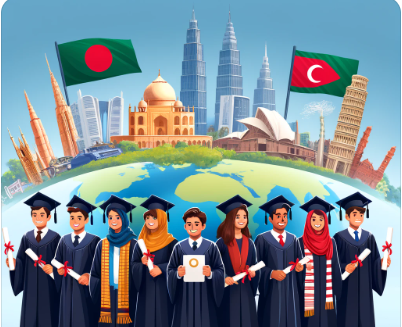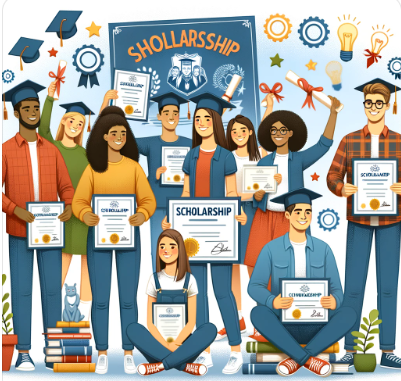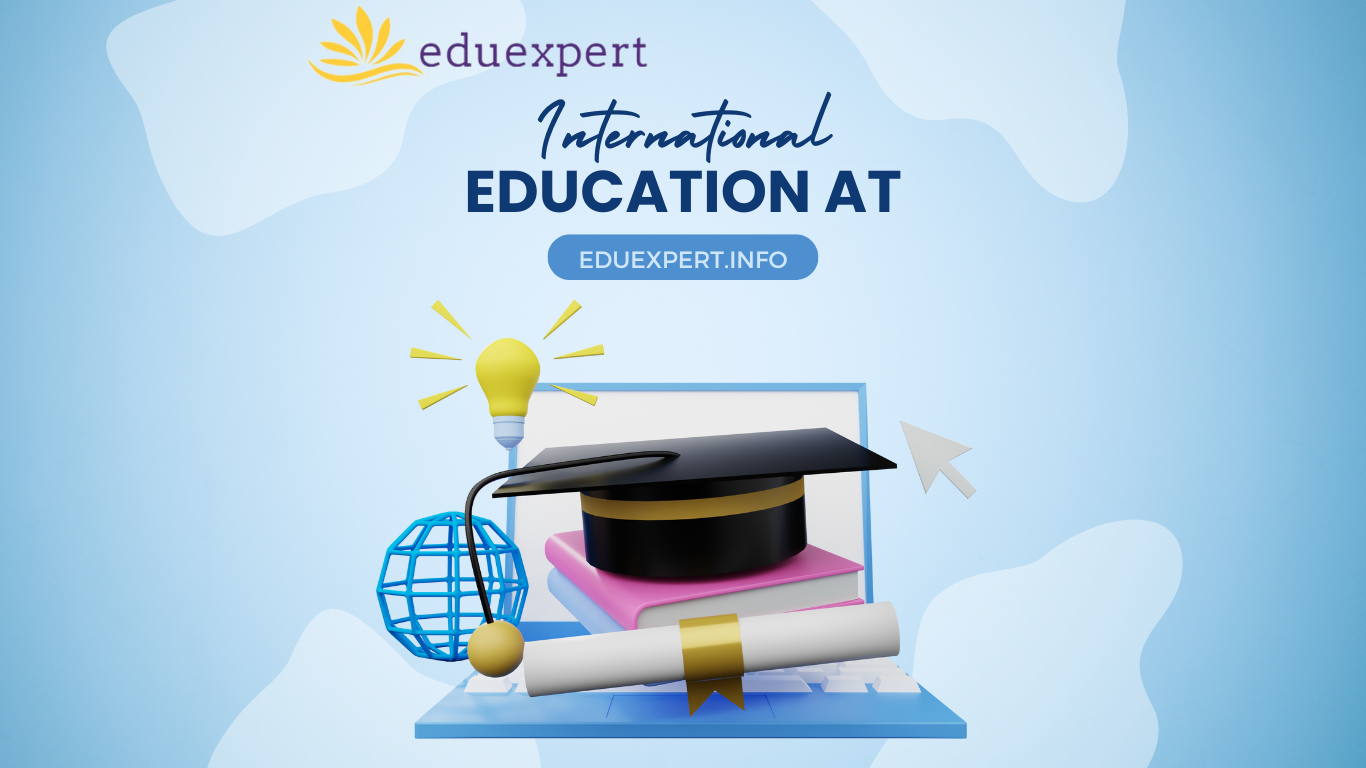Introduction
Studying abroad is a dream for many students in Bangladesh. With the promise of world-class education, cultural exposure, and better career opportunities, it’s no wonder that thousands of Bangladeshi students aspire to study overseas each year. However, the financial responsibility can be a significant barrier. This guide provides comprehensive information on securing a scholarship to study abroad from Bangladesh, covering various strategies, tips, and resources to help you obtain the funding you need.
Why Study Abroad in Bangladesh?

Studying abroad offers numerous advantages for Bangladeshi students. Not only does it provide access to top-tier education, but it also enhances personal growth and global awareness. Students gain exposure to different cultures, languages, and perspectives, which broadens their horizons and equips them with skills to thrive in a globalized world. Additionally, international degrees can significantly boost career prospects, making graduates more competitive in the job market.
Understanding Scholarships for Bangladeshi Students
Types of Scholarships
Scholarships come in various forms, including merit-based, need-based, program-specific, and country-specific scholarships. Merit-based scholarships are awarded based on academic excellence, while need-based scholarships consider the student’s financial situation. Program-specific scholarships target students in particular fields of study, and country-specific scholarships are designed for students from certain countries, such as Bangladesh.
Eligibility Criteria
Eligibility criteria for scholarships vary widely. Typical requirements include academic achievements, language proficiency, extracurricular involvement, and financial need. It’s crucial to thoroughly research the specific requirements for each scholarship to ensure you qualify before applying.
Top Scholarships to Study Abroad from Bangladesh
Government Scholarships
Government scholarships are often the most sought-after due to their comprehensive coverage. These scholarships, funded by the host country’s government, typically cover tuition fees, living expenses, travel costs, and insurance. Examples include the Fulbright Program (USA), Chevening Scholarships (UK), and Erasmus Mundus (Europe).

University-Specific Scholarships
Many universities offer scholarships to attract talented international students. These scholarships can be partial or complete and are often based on academic merit. Researching individual university websites is essential to finding these opportunities.
Private and NGO Scholarships
Multiple private organizations and NGOs offer scholarships to support international education. These scholarships may target students from developing countries or those pursuing specific fields of study. Examples include the Gates Cambridge Scholarships and the Joint Japan/World Bank Graduate Scholarship Program.
How to Research Scholarships
Online Scholarship Databases

Online scholarship databases are valuable resources for finding scholarships. Websites like ScholarshipPortal, DAAD, and StudyinAustralia provide extensive lists of scholarships available to international students.
University Websites
University websites are another critical resource. Most universities have dedicated pages for scholarships and financial aid detailing available scholarships and application processes.
Government Portals
Government portals often list scholarships funded by the government or related institutions. For instance, the Education USA website provides information on scholarships for studying in the United States.
Application Process for Scholarships
Preparing Your Documents
The application process typically requires several documents, including academic transcripts, certificates, a CV, and proof of language proficiency. Organizing these documents early can streamline your application process.
Writing a Strong Personal Statement
A personal statement is a crucial component of your application. It should reflect your academic achievements, career goals, and application motivation. Make sure to tailor each personal statement to the specific scholarship.
Getting Recommendation Letters
Strong recommendation letters can significantly enhance your application. Choose recommenders who know you well and can speak to your academic and personal strengths. Please provide them with all the necessary information to write a compelling letter.
Tips for a Successful Scholarship Application

Highlighting Your Achievements
Clearly articulate your academic and extracurricular achievements. Use specific examples to demonstrate your accomplishments and how they align with the scholarship criteria.
Tailoring Your Application
Tailor each application to the specific scholarship. Highlight relevant experiences and qualifications that make you an ideal candidate for that particular scholarship.
Meeting Deadlines
Meeting deadlines is critical. You must complete a deadline to ensure you are eligible for the scholarship. Keep a calendar of application deadlines and set reminders to ensure you submit all materials on time.
Common Mistakes to Avoid

Ignoring Eligibility Criteria
Ensure you meet all eligibility criteria before applying. Applying for scholarships you need to be eligible for is a waste of time and effort.
Submitting Incomplete Applications
Double-check that your application is complete. Missing documents or incomplete forms can lead to disqualification.
Procrastination
Start your applications early. Procrastination can lead to rushed, lower-quality applications less likely to succeed.
Developing a Strategy for Scholarships
Building a Strong Profile
Strengthen your academic and extracurricular profile. Engage in activities demonstrating leadership, community involvement, and a commitment to your field of study.
Networking and Finding Mentors
Networking can provide valuable insights and opportunities. Connect with alumni, professors, and professionals in your field who can offer advice and recommend scholarships.
Preparing for Scholarship Interviews
Prepare for common scholarship interview questions, such as your motivations for studying abroad, career goals, and how you plan to contribute to the community. Practice your responses and dress professionally for your scholarship interview.
The Role of Language Proficiency Tests
Importance of IELTS/TOEFL
Language proficiency tests like IELTS and TOEFL are often required for scholarship applications. High scores can enhance your application and demonstrate your readiness for academic studies in an English-speaking environment.
Preparing for Language Tests
Invest time in preparing for language tests. Utilize practice tests, study guides, and language courses to improve your proficiency.
Writing an Outstanding Personal Statement
Understanding the Prompt
Carefully read and understand the prompt for your statement. Address all aspects of the prompt in your essay.
Structuring Your Essay
Structure your statement with a clear introduction, body, and conclusion. Each section should flow logically and cohesively.
Proofreading and Editing
Proofread and edit your statement multiple times. Seek feedback from mentors or peers to ensure your essay is clear, concise, and error-free.
Getting Strong Recommendation Letters
Choosing the Right Recommenders
Select recommenders who can provide detailed and positive evaluations of your academic and personal qualities. Ideally, they should be familiar with your achievements and potential.
Providing Guidance to Recommenders
Provide your recommenders with information about the scholarship and what it seeks in candidates. This can help them tailor their letters to highlight relevant strengths.
Financial Planning for Studying Abroad

Budgeting for Your Studies
Create a detailed budget for your studies abroad. Include tuition fees, living expenses, travel costs, and miscellaneous expenses.
Understanding Living Costs
Research the living costs in your destination country. Understanding the cost of living can help you plan your finances more accurately.
Finding Additional Financial Support
Explore additional financial support options like part-time work, grants, and loans. Many countries allow international students to work part-time during their studies.
Visa Application Process

Understanding Visa Requirements
Familiarize yourself with the visa requirements of your destination country. Ensure you meet all criteria and gather the necessary documents.
Preparing Your Visa Application
Prepare your visa application meticulously. Submit all required documents and forms accurately and on time.
Attending the Visa Interview
Prepare for your visa interview by reviewing potential questions and practicing your responses. Bring all necessary documents and dress professionally.
Adapting to Life Abroad
Cultural Adjustment
Adjusting to a new culture can be challenging. Be open-minded and willing to learn about and adapt to the local culture.
Building a Support Network
Build a support network of friends, mentors, and local contacts. A support system can help you navigate challenges and feel more at home.
Staying Connected with Family
Stay connected with your family and friends back home. Regular communication can provide emotional support and help you manage homesickness.
Success Stories: Bangladeshi Students Abroad
Real-Life Examples
Read about the success stories of Bangladeshi students who have studied abroad. Their experiences can provide inspiration and practical tips.
Lessons Learned
Learn from the experiences and challenges faced by other students. Their insights can help you prepare for your journey.
Resources for Bangladeshi Students
Scholarship Portals
Utilize scholarship portals that list opportunities for Bangladeshi students. Websites like ScholarshipPortal and DAAD are excellent starting points.
Educational Consultancies
Educational consultancies can provide personalized guidance and support throughout your scholarship application process.
Online Communities
Join online communities and forums to connect with other students, share experiences, and find support.
FAQs
How can I find scholarships to study abroad in Bangladesh?
Research online scholarship databases, university websites, and government portals. Networking and seeking advice from mentors can also help.
What are the standard eligibility criteria for scholarships?
Eligibility criteria typically include academic achievements, language proficiency, extracurricular involvement, and financial need.
How can I improve my chances of getting a scholarship?
Develop a strong profile, tailor your applications, highlight your achievements, and meet all deadlines. Preparing thoroughly for interviews is also crucial.
What should I include in my statement?
Include your academic achievements, career goals, and motivations for applying. Make sure to address the specific prompt and structure your essay.
How can I prepare for a scholarship interview?
Practice common interview questions, refine your responses, and dress professionally. Mock interviews with friends or mentors can be helpful.
What financial planning is needed for studying abroad?
Create a detailed budget that includes tuition, living expenses, and travel costs. Explore additional financial support options like part-time work, grants, and loans.
Conclusion
Securing a scholarship to study abroad in Bangladesh is a challenging yet achievable goal. By understanding the various types of scholarships, meeting eligibility criteria, and preparing solid applications, Bangladeshi students can unlock opportunities for international education. With determination, thorough research, and strategic planning, you can make your dream of studying abroad a reality.







2 thoughts on “How to Study Abroad from Bangladesh: A Complete Guide”
Really amazing. Got to know many things. It has very helpful information. Plese give us such guide lines on other things.
Oww that’s nice. informative too 💜